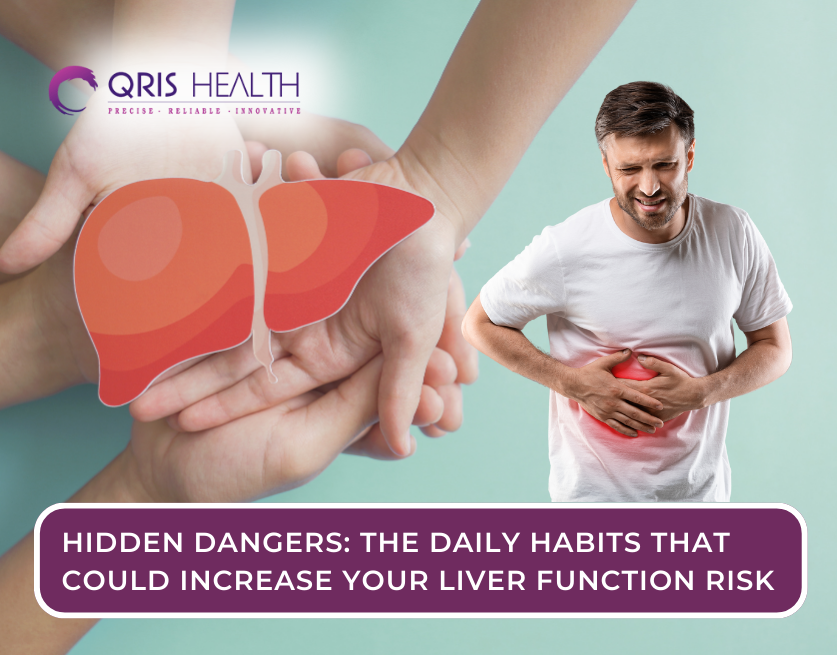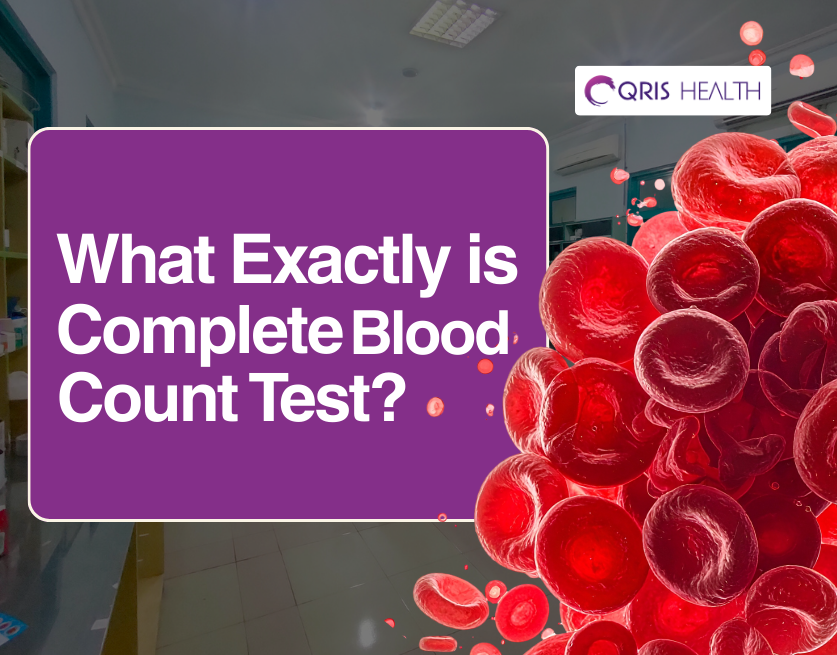Our liver is an unsung member of the anatomy who works day and night to detoxify our body, synthesize crucial proteins, and help in the metabolism of our food. However, just like any other hardworking hero, parts of our body including our liver can easily be overwhelmed by unhealthy practices. This blog highlights some of the seemingly innocuous behaviors that one develops over the course of the day and that might be damaging the liver. We will also be discussing about Complete Liver Function Test (LFT) available at Qris Health Labs.
Understanding the Liver: The Liver – a vital organ for global well-being
The liver is the largest internal organ of the human body involved in over 500 crucial responsibilities. Some of its key roles include:
- Detoxification: The liver controls the elimination of toxic substances, such as alcohol and drugs or toxins from the blood.
- Protein Synthesis: It plays a significant role in producing essential proteins for different body activities such as blood clotting and enzymatic activity.
- Bile Production: Bile is a greenish-yellow substance that is secreted by the liver to help with the digestion of fats.
- Blood Sugar Regulation: The liver is an essential organ that helps to regulate correct blood glucose levels.
Hidden Culprits: Habits That Can Harm Your Liver
While some risk factors like genetics and certain medical conditions are beyond our control, many daily habits contribute to liver damage:
- Excessive Alcohol Consumption: Alcohol being one of the most lethal toxins has been known to harm the liver cells in the body. In the long run, this results in hepatic steatosis or fatty liver, cirrhosis, and eventually liver failure.
- Unhealthy Diet: This is true because the liver could be made to work harder than it normally does in breaking down saturated fats, processed foods, and substances present in sugary drinks. Saturated fats and sugars in the diet are found to be detrimental but their effects on the liver are different; the former impairs liver function while the latter leads to the development of fatty liver disease.
- Obesity: Being overweight, also has an effect on your liver and may lead to fatty liver disease and other liver-related complications.
- Medications and Supplements: Some of the most typical drugs and dietary supplements can harm the liver if consumed in a large amount or together with other substances that influence the organ.
- Untreated Chronic Conditions: Some of the related health issues include diabetes, hypertension, elevated cholesterol levels, and other liver-related diseases like fatty liver disease.
- Smoking: It is an established fact that smoking kills; not only it cause severe harm to the lungs and makes you more prone to liver ailments.
What does the full liver function test involve?
An LFT is a laboratory test, which is done on your blood sample to determine the concentration of enzymes, proteins, and bilirubin in your body. These levels can show how effectively your liver can work. An LFT can therefore not pinpoint why the liver is malfunctioning but it can indicate possible complications that should be investigated.
Types of Tests Included in a Complete Liver Function Test:
- Liver Enzymes: Some orally administered drugs, and enzyme markers such as ALT (alanine aminotransferase) and AST (aspartate aminotransferase), which suggest liver dysfunction are elevated.
- Bilirubin: Bilirubin is a naturally occurring substance and a bile pigment which is a waste product from the degradation of hemoglobin. High bilirubin levels indicate that there might be issues with the production or the flow of bile.
- Serum Proteins: This organ synthesizes many kinds of protein and when these proteins are detected to be high or low it will clearly show that the liver is not functioning properly.
- Albumin: It is necessary for the integrity of your body to keep you adequately hydrated and the fluids in your bloodstream. Preoperative hypoalbuminemia is associated with the prevalence of postoperative liver disease.
- Globulin: This group of proteins plays some part in the immune response system of the body. It was discovered that problems with the liver may be pointed out by odd globulin levels.
That is why the promotion of early detection and intervention signs of possible liver issues is critical in the prevention of liver diseases and preservation of its health. To be able to take charge of your health our recommended service is a Complete Liver Function Test at Qris Health Labs.






